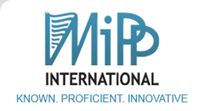Ritter K., Virág Á. Economic role of tourist cooperation in Hungary
Krisztián Ritter
Associate Professor, Deputy Director, Institute of Regional Economics and Rural Development, Szent István University, Faculty of Economics and Social Sciences
ritter.krisztian@gtk.szie.hu
Páter Károly St., 1, H-2100 Gödöllő, Hungary
Ágnes Virág
Assistant Lecturer, Faculty of Economics and Social Sciences, Institute of Regional Economics and Rural Development, Szent István University
ritter.krisztian@gtk.szie.hu
Páter Károly St., 1, H-2100 Gödöllő, Hungary
Abstract. Modern tourism was developed owing to the economic, social and technological changes in the XX century. The establishment of sustainable and competitive tourism is a trend that can be observed worldwide. Therefore, in countries interested in tourism, such as Hungary, it has become an important development direction to establish an institutional structure based on tourism destination management (TDM). Over the past decade developing organizations did not affect only our country’s most advanced touristic areas (eg.: Heviz, Lake Balaton, Siofok, Hajdúszoboszló, Buk), but also an increasing number of destination organizations were set up in rural areas dealing with a variety of economic and social problems. Along this the question could be raised about what the role of these associations were / is, and how efficiently could / do they operate.The questions are whether this institutionalized cooperation can work effectively in our country; what effects do they have in the life of a region; and if these effects can be measured, which indicators are the most suitable ones to do so?
Key words: Hungary, tourism, cooperation, association, destination, sustainability, indicators, analysis, economical effect.
ATTACHMENTS: /5_Ritter_i_dr.pmd.pdf







